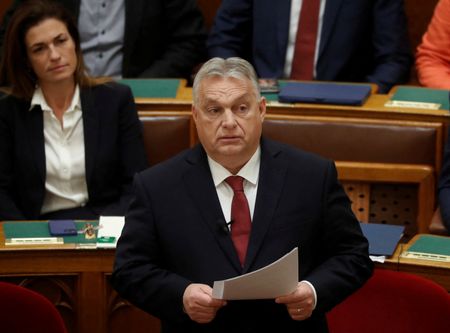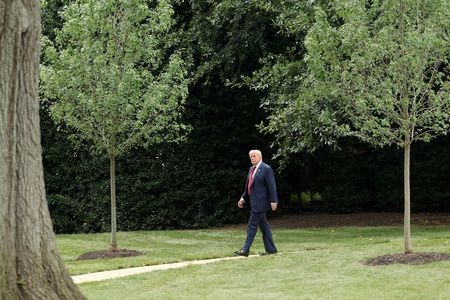By Gergely Szakacs
BUDAPEST (Reuters) -The share of German companies planning to boost investments in Hungary has plunged to its lowest level since Prime Minister Viktor Orban took power in 2010 amid weak demand and uncertain economic prospects, the German business chamber said.
Its survey of 236 German companies in Hungary said weak business confidence pointed to a continued poor economic outlook after two years of near stagnation, at odds with Orban’s hopes that the economy could expand by 2.5% this year.
Data released last week showed Hungary’s economy was mired in stagflation in the first quarter, with output unchanged from a year ago, while inflation ran at the European Union’s highest level.
“Applied to the economy, this corporate sentiment signals that we can expect neither a substantial acceleration in economic growth, nor a meaningful upswing in exports this year,” said the survey conducted in March and released on Wednesday.
Germany is Hungary’s largest foreign investor and the stagnation of Europe’s largest economy has weighed heavily on Hungary’s economy, also held back by an inflationary surge following Russia’s 2022 invasion of neighbouring Ukraine.
In the past decade, German companies had invested an annual 2-3 billion euros in Hungary, the survey said, adding that nearly three out of four companies surveyed signalled weak demand as a key risk for the next 12 months.
The survey, which predates U.S. President Donald Trump’s Liberation Day tariff announcements, said prospects also depended to a large degree on whether trade conflicts between the United States and Europe can be resolved.
Hungary’s central bank, which left its base rate steady at the EU’s joint-highest 6.5% level last month, said tariffs have added risks to growth and inflation while increasing volatility in financial markets, calling for a cautious policy.
(Reporting by Gergely Szakacs, editing by Ed Osmond)











